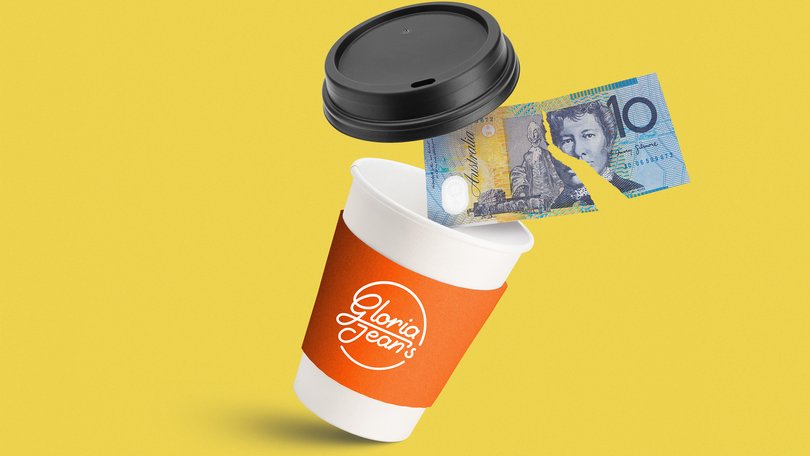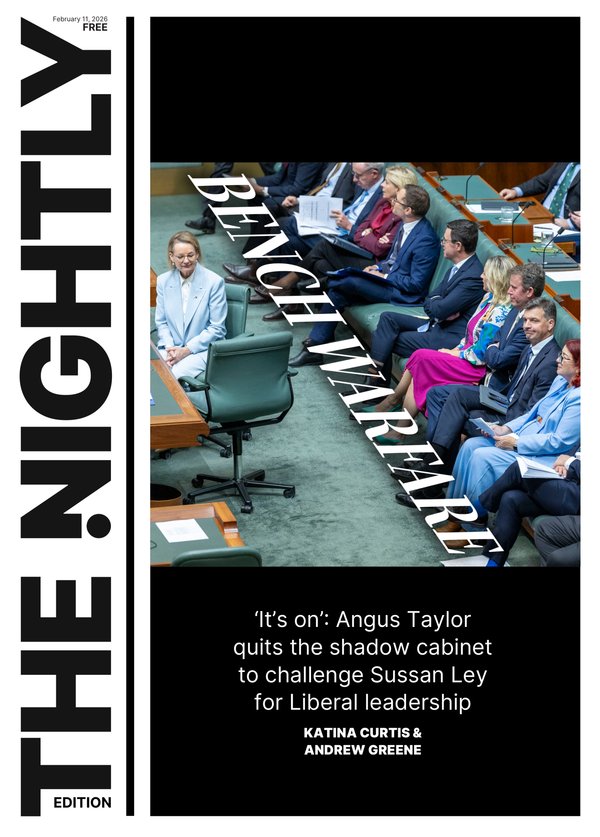Why Australian consumers could soon struggle to find a shop that accepts cash
A rule that requires businesses supplying essential services to accept cash comes into effect soon. But there is a big loophole that could make it much harder to pay the old-fashioned way.

Australian consumers could soon struggle to find shops that accept banknotes. But many don’t seem to mind.
From January 1, businesses supplying essential services must offer the option of banknotes and coins. Small businesses, defined as having 20 or fewer staff, will be exempt, potentially making it harder to pay with physical money.
A third of small businesses are considering going cashless in the coming year, a Council of Small Business Organisations Australia survey revealed.
Sign up to The Nightly's newsletters.
Get the first look at the digital newspaper, curated daily stories and breaking headlines delivered to your inbox.
By continuing you agree to our Terms and Privacy Policy.As he lined up for lunch with friends outside a Coffee Factory cafe in Sydney today, business owner David Bartlett said he preferred going cashless. The 43-year-old millennial told The Nightly it had been three months since he last used banknotes to pay for anything after a friend repaid him.
“I rarely carry cash,” he said. “I don’t get paid in cash so why would I spend cash? Tap and go: if I lose my wallet, I don’t lose my cash. Security. It’s faster.”
The Fishbowl cafes across Australia, serving Japanese-style food, proudly declare they are cashless on a big screen at the counter.
“We know our customers value fresh, healthy food that’s fast at an affordable price. Going cashless speeds up transactions, improves hygiene, and since we absorb all card fees, there are no hidden costs,” it said.
The Reserve Bank of Australia this week noted that fewer shops take cash.
“The available survey data on cash acceptance suggest that, although most merchants report they still accept cash, an increasing share of consumers are observing merchants that refuse cash as a payment method,” its payment system annual review said.
Gloria Jean’s Coffees in September, 2024, announced a cashless trial at its company-owned stores, but two months later, Treasurer Jim Chalmers announced a cash rule, or mandate, to ensure Australians can use banknotes for essential items.
The cafe chain’s owner Retail Food Group, will accept polymer notes again thanks to Dr Chalmers. But its franchises are considered small business which exempts them from taking regular money.
“All Gloria Jeans franchisees are free to make their own decisions regarding accepting cash payments and, given each is independently owned and operated, they may be exempt from the mandate,” a spokesman told The Nightly.
Brian Walker, the chief executive and founder of the Retail Doctor Group, said more cafes in particular were likely to go cashless, especially if they had younger customers who typically paid with a tap-and-go card or smartphone app.
“More quick convenience products will continue to be cashless. Takeaway, coffees, hospitality, cafes: because the vast majority of your customers are cashless,” he told The Nightly. “There’s no great advantage now for the small business to have the infrastructure to process cash.”
Hawkesbury City Council in Sydney’s north-west last month announced it would only accept cashless payments at its rubbish tip and animal shelter.
It noted cash made up just 3 per cent of payments at its waste management facility and only 12 per cent of transactions at its companion animal shelter.
The council also argued that going cashless would save ratepayers $7500 a year in costs associated with transporting cash, and noted customers weren’t charged merchant fees for debit and credit card payments.
“Removing cash from site reduces security risks to staff, improves transaction tracking, and ensures all payments are processed transparently and securely,” it said.
An RBA consumer payments survey from 2022 showed cash made up just 13 per cent of consumer payments, a halving from 27 per cent in 2019 before the pandemic.
Mr Walker, a retail strategist, said this made many small businesses reluctant to investment in software programs to keep track of cash transactions.
“If average of 90 per cent of transactions are done on card, you’re investing in quite a large, capital infrastructure in point-of-sale systems for what is fundamentally 10 to 12 per cent of takings, on average,” he said. It’s not actually an economic proposition. It’s increasingly less of an economic proposition.”

